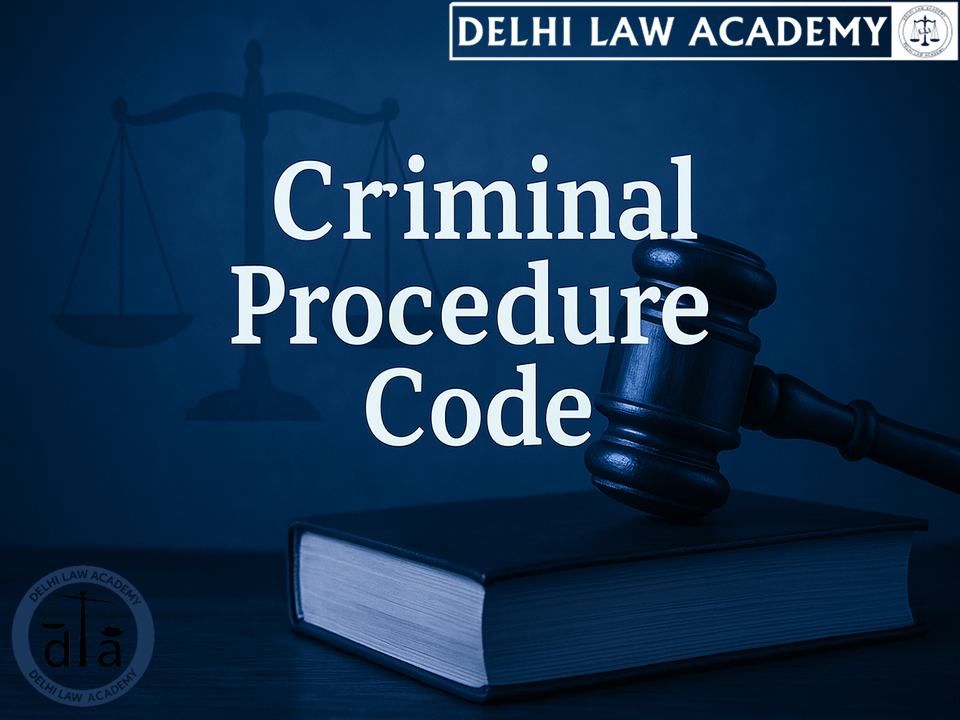
⚖️ INHERENT POWERS OF HIGH COURT
Preparation for RJS, DJS, PCS (J) and other Judicial Service exams
📘 CRIMINAL PROCEDURE CODE EXPLAINED
The following is the original unaltered text, formatted for clarity and readability:
INHERENT POWERS OF HIGH COURT Preparation for RJS, DJS, PCS (J) and other Judicial Service exams TOPICS • What is this inherent power? • How is this power to be exercised? Supreme Court judgments discussed in this post: • Minu Kumari v. State of Bihar [2006 SC] • R.P. Kapur v. State of Punjab [1960 SC] • State of Haryana v. Bhajan Lal [1992 SC] • Khushi Ram v. Hashim [1959 SC] • Madhu Limaye v. State of Maharashtra [1977 SC] • Hooghly Mills Company v. State of West Bengal October 17, 2019 SC CRIMINAL PROCEDURE CODE EXPLAINED The Criminal Procedure Code forms the bedrock of any and every Judicial Service exam in the country. Its thorough knowledge is a must for all aspirants of RJS, DJS, PCS (J) and every other Judicial Service exam. To help such aspirants, DELHI LAW ACADEMY JAIPUR has launched a series of study material modules on all important aspects of this vital part of their syllabus: *************** Section 482 Inherent powers of High Court • Nothing in this Code shall be deemed – to limit or affect the inherent powers of a High Court • to make – such orders as may be necessary – to give effect to any order under this Code – to prevent abuse of the process of any Court – to secure the ends of justice The Law on section 482: What is this inherent power? Minu Kumari v. State of Bihar [2006 SC] • All Courts, whether civil or criminal, possess, in the absence of any express provision, as inherent in their constitution, all such powers as are necessary to do the right and to undo a wrong in the course of administration of justice... • on the principle “quando lex aliquid alicue concedit....” • that is: when the law gives a person anything, it gives him that without which it cannot exist. In re State of Uttar Pradesh [1959 All] • Section 482 Cr.P.C. is a reminder to the High Courts that they are not merely courts of law but also courts of justice and possess inherent powers to remove injustice. How is this power to be exercised? R.P. Kapur v. State of Punjab [1960 SC] • It is to be exercised ex debito justitiae to do real and substantial justice for the administration of which alone courts exist. • ex debito justitiae: – as a debt of justice – in accordance with the requirement of justice – as a matter of right • A matter ex debito justiciae is one which a litigant is entitled merely upon the asking for it; as opposed to something which may be a matter of judicial discretion or determination. • The inherent power has to be exercised sparingly with circumspection and in the rarest of rare cases. State of Haryana v. Bhajan Lal [1992 SC] • Inherent power of the High Court cannot be invoked in regard to matters which are directly covered by specific provisions in the Cr.P.C. Khushi Ram v. Hashim [1959 SC] • Whether the bar under Sec. 397 (2) Cr.P.C. in relation to interlocutory orders is applicable to Section 482 Cr.P.C. ? Madhu Limaye v. State of Maharashtra [1977 SC] • Generally speaking, the bar put on revision of an interlocutory order u/s 397 (2) Cr.P.C. cannot be circumvented by invoking sec 482. • But nothing in the Code, not even Section 397, can affect the amplitude of the inherent power preserved in Section 482. • Where the impugned interlocutory order clearly brings about a situation which is an abuse of the process of the court, then... • ...for securing the ends of justice, interference by High Court is absolutely necessary and nothing contained in Section 397 (2) can limit the exercise of the inherent power of High Court. Interlocutory order only settles intervening matter relating to the cause. • Such orders are made to secure some end and purpose necessary and essential to the progress of case and generally collateral to the issues to be settled by the court in the final judgment. • As a general rule of law on appeal lies against an interlocutory order. But there are interlocutory orders which can be challenged in an appeal against the final decree. • Any reference to an interlocutory order generally includes interim orders. • An interim order is fully enforceable until and unless it is changed by a final order: • An interim or interlocutory order is by definition an order made pending the cause, before a final disposition on the merits. • Whether an interlocutory order can be revised by the High Court despite the bar of section 397(2) CrPC? Hooghly Mills Company v. State of West Bengal October 17, 2019 SC • Section 397(2) provides that a High Court’s powers of revision shall not be exercised in relation to any interlocutory order… • …whereas Section 482 provides that nothing in Cr.P.C will limit the High Court’s inherent powers to prevent abuse of process or to secure the ends of justice. • Hence the High Court may exercise its inherent powers u/s 482 to set aside an interlocutory order, notwithstanding the bar u/s 397(2). • However, it is settled law that this can only be done in exceptional cases. • This is, for example, where a criminal proceeding has been initiated illegally, vexatiously or without jurisdiction. • Whether Sec. 482 Cr.P.C. can be exercised to review an earlier order ? ****************
📚 For complete CrPC study material, visit Delhi Law Academy
💬 FAQs — Inherent Powers of High Court under Section 482 CrPC
Common long-tail search questions answered about Section 482 CrPC, its scope, limitations, and key Supreme Court rulings — important for RJS, DJS & PCS(J) aspirants.
- ✅ Give effect to any order under CrPC
- ✅ Prevent abuse of the process of any court
- ✅ Secure the ends of justice
These powers exist inherently and are not created by the Code — they ensure that justice prevails where procedural law might otherwise fail.
Search phrase: “what are inherent powers of High Court under section 482 crpc meaning”
Typical instances include:
- To prevent abuse of court process
- To quash frivolous or vexatious proceedings
- To correct a miscarriage of justice or uphold fairness
This was clearly emphasized in R.P. Kapur v. State of Punjab (1960) and reaffirmed in State of Haryana v. Bhajan Lal (1992).
Search phrase: “when can High Court use section 482 crpc inherent powers rarest of rare cases”
the High Court may still use its inherent powers under Section 482 to interfere when:
- The interlocutory order causes a miscarriage of justice
- It is necessary to prevent abuse of process
Search phrase: “difference between section 397 and 482 crpc interlocutory order”
The principle, derived from *“quando lex aliquid alicui concedit…”*, means:
“When the law gives a person a right, it gives him everything necessary to make that right effective.”
Search phrase: “minu kumari vs state of bihar 2006 inherent powers high court summary”
However, inherent powers may be used to **rectify clerical errors** or **prevent manifest injustice**, but not to re-hear or alter a decided matter.
Search phrase: “can high court review own order under section 482 crpc”
It signifies that the court acts out of obligation to do real and substantial justice — not as a matter of discretion but as a matter of right, whenever injustice is evident.
Hence, inherent powers are exercised ex debito justitiae to ensure justice where ordinary provisions fall short.
Search phrase: “meaning of ex debito justitiae in criminal law section 482 crpc”
📚 For complete CrPC notes and judgments, visit Delhi Law Academy
📘 Free Study Material for Judiciary Aspirants!
Download our FREE study material prepared by Delhi Law Academy’s expert faculty.
Contact us
📍 Delhi Law Academy – Jaipur Branch
6C, Tower 2, Coaching Hub, Pratap Nagar, Jaipur – 302033
📞 Phone:
+91 9911916552
+91 8447285606
✉️ Email:
contactus@delhilawacademy.com

